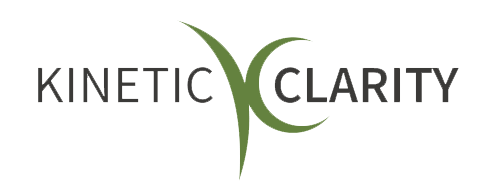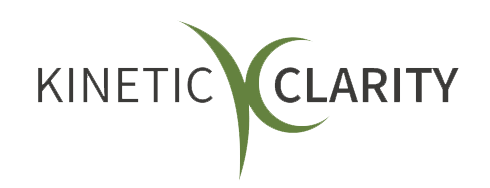Why Asking For Feedback Can Be A Key To Success
Everybody loves to hear "well done".

Everybody loves to hear when they are doing their job well. If we were guaranteed that all we would ever hear is praise, then we would probably be inclined to ask for feedback every single day. Yet, we know that nobody is perfect and that there’s always room for improvement; that’s why hearing others critique us at our jobs can be nerve-wracking.
As a business leader, seeking feedback from colleagues, employees, and customers is crucial for personal and organizational growth. Feedback provides valuable insights into shortcomings and areas for improvement, helps build trust and fosters open communication, and ultimately enhances leadership effectiveness.
You can learn healthy and effective ways to gather feedback from several stakeholders and also set a good example for your employees about the power of listening.
Why feedback matters
Self-awareness is a critical component of effective leadership. Leaders with a high degree of self-awareness are better equipped to understand their strengths and weaknesses and how their actions impact others. Seeking feedback from others can help leaders gain a perspective on how their actions affect all areas of the business, giving insight into what’s working and what isn’t. By understanding where they may fall short, leaders can work on improving those areas and become more effective leaders.
Feedback also plays a critical role in building trust and fostering open communication. When leaders seek feedback, they show that they value the opinions and perspectives of others. This willingness to listen creates a culture of trust where employees feel comfortable sharing their thoughts and ideas. By creating an environment where feedback is welcomed and valued, leaders can establish open lines of communication that foster collaboration and innovation.
Another benefit of seeking out feedback is that it can help leaders identify blind spots that may be hindering their effectiveness. Blind spots are areas where leaders may not be aware of their own weaknesses, biases, or shortcomings. With feedback, leaders may realize these areas exist and be mindful of their impact on others. By seeking feedback, leaders can uncover these unrecognized weak spots and work on improving them.
One study found that executives who ranked in the bottom 10% in asking for feedback were rated at the 15th percentile in overall leadership effectiveness. On the other hand, leaders who ranked in the top 10% were rated at the 86th percentile as effective leaders. This study highlights the importance of seeking feedback and its significant impact on leadership success.
How to ask for feedback
If you want to know something, you need to ask. Rarely will a person, especially a subordinate, walk up to another person and give unsolicited feedback. One study revealed that 50% of employees keep their ideas and opinions to themselves because they say that nobody asks them!
Asking for feedback from a range of stakeholders is a process; one can’t simply walk up to an employee and say, “So, how am I doing?” Frankly, that could be intimidating!
Instead, there are ways that you can ensure that all people feel free to give honest and constructive evaluations of your role. The important thing after that is to learn how to process those replies and put them into action.
Create a Safe and Supportive Environment
Creating a safe and supportive environment for feedback is essential to ensure that your employees and colleagues feel comfortable providing an honest and constructive critique. To do so, you should take the following steps:
- Set the tone: Start by setting the tone for open communication. Encourage your team to speak up and share their thoughts, ideas, and concerns.
- Show vulnerability: As a leader, it's essential to lead by example. Share your own experiences and challenges, and be open to feedback and suggestions.
- Establish trust: Build trust by following through on commitments and being transparent about your actions and decisions.
- Provide a safe space: Create a safe space for feedback by allowing anonymity and confidentiality and ensuring that there will be no negative consequences for providing feedback.
Gather Feedback from a Range of Stakeholders
Gathering feedback from various stakeholders is crucial to get a well-rounded perspective on your performance. Consider the following strategies:
- Employee Surveys: Use employee surveys to gather feedback on a range of topics, from company culture to specific projects.
- Peer Reviews: Ask for feedback from your peers or colleagues. This can provide a unique perspective on your performance and leadership style.
- Mentors and Coaches: Seek feedback from mentors and coaches who can offer valuable insights and advice.
- Feedback Sessions: Host feedback sessions with your team, where they can share their thoughts, ideas, and concerns openly.
Respond in a Constructive and Actionable Way
Receiving feedback can be challenging, but responding to it in a constructive and actionable way can help you improve your performance and build stronger relationships with your team. Consider the following techniques:
- Listen actively: Listen closely to what is being said without interrupting or becoming defensive.
- Ask questions: Ask for clarification and be sure you understand the feedback.
- Thank the person: Thank the person for their feedback, showing appreciation for their time and effort.
- Take action: Identify specific steps you can take to address the feedback and improve your performance.
Wrapping Up
Seeking feedback is essential for business leaders who want to become more effective in their roles. It allows leaders to understand their strengths and weaknesses better, identify blind spots, and build trust with employees. In addition, by creating an open feedback culture, leaders can foster communication, collaboration, and innovation.












